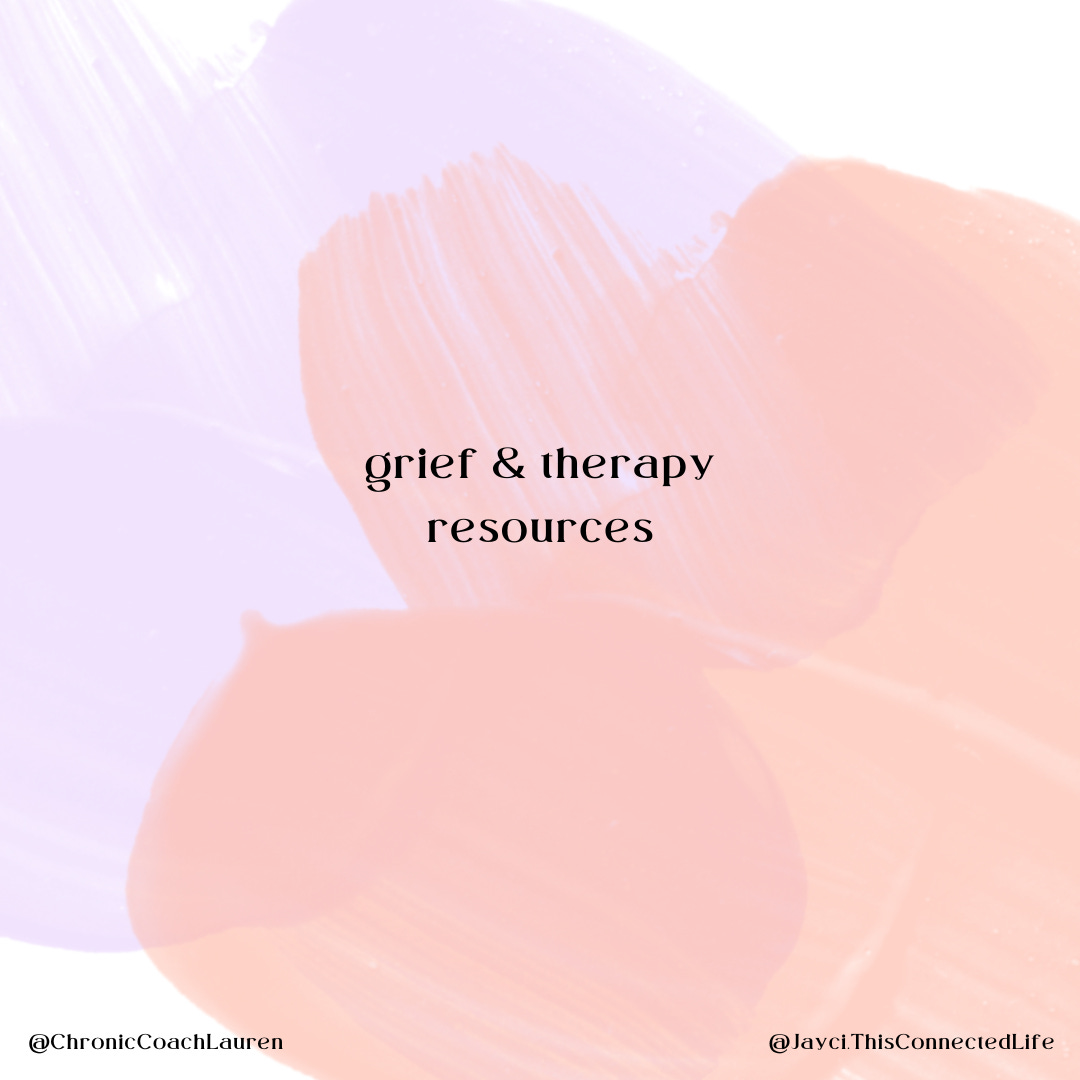This past Friday, November 22nd, I hosted the first Recharge Room alongside my colleague, Millennial Burnout Coach Jayci Gibbs. It was a deeply grounding session, and one of the key topics we explored was grief—its many forms, meanings, and the ways it shows up in our lives.
Grief isn’t just about loss through death. It can stem from chronic illness, identity shifts, career changes, estranged relationships, or unmet expectations. Recognizing grief in all its dimensions is vital to healing.
As we enter this season of transition, family gatherings, and seasonal pressures, it’s a good time to focus on our mental health. If you’re struggling, know you’re not alone—and support is available.
Mental Health and Grief Support Resources
Here’s my go-to list of therapeutic and grief-specific resources to guide you:
For Spoonies and Chronic Illness Warriors:
Chronic Illness Therapy Directory: Therapists specializing in chronic conditions.
Christina P. Kantzavelos, LCSW (chronic illness psychotherapist)
Somewhere Under The Rainbow Collective (Spoonie-friendly)
Katie Willard Virant, LCSW (Spoonie-friendly, multiple states)
Crystal Britt, LCSW (CA only)
Other Identity-Specific Therapy Directories:
Inclusive Therapists: Tailored for LGBTQIA+, BIPOC, and neurodivergent folks.
Tia (for women)
FOLX (LGBTQIA+)
The National Queer and Trans Therapists of Color Network (NQTTCN)
BIPOC Mental Health Resources:
AAPI/South Asian Mental Health Resources:
LatinX/Hispanic Mental Health Resources:
Trauma and Grief Healing Modalities:
EMDR (Eye Movement Desensitization and Reprocessing).
Brainspotting (targeted trauma release).
Internal Family Systems (IFS) for family-related trauma and parts work.
Family Constellations for relational healing.
Accessible Therapy Options:
Open Path Therapy Collective: A membership grants you access to affordable therapy.
Sliding Scale and Cash Rate Options: Even if not listed, many providers offer reduced rates—don’t hesitate to ask (whether with a therapist or any other clinician!)
Other Databases:
The State of Mental Health Access
While mental health resources are needed now more than ever, health insurance companies are underpaying/withholding payments to therapists, forcing many to divest from insurance models. While this shift can be challenging for clients, private practices often allow providers to offer higher-quality care.
If you’re struggling to find care, don’t give up. Advocate for yourself by asking questions, exploring alternative directories, and seeking sliding scale options. Empowerment starts with education.
Lean Into the Glimmers
As always, I encourage you to look for glimmers—those small moments of joy and hope—as you navigate this season. Whether it’s finding the right therapist, setting boundaries with family, or simply taking time for yourself, you deserve the support you need.
Take care of yourself, and don’t hesitate to reach out for help when you need it.
With care,
Lauren





